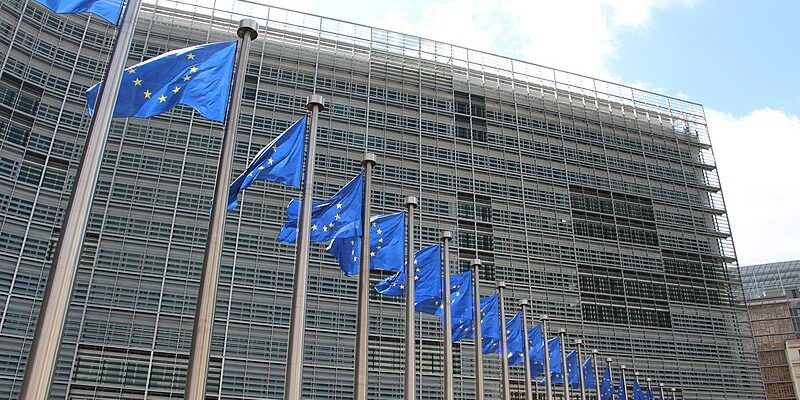The Berlaymont building, headquarters of the European Commission in Brussels, in June 2015. Photo: Fred Romero / Wikimedia Commons / CC by
On Tuesday 6 February, the European Parliament voted by a very large majority (524 votes for, 18 against and 97 abstentions) the “measures intended to ensure a high level of interoperability of the public sector throughout the Union (regulation for an interoperable Europe). This text, in English Interoperable Europe Act (IEA), was hailed by the Free Software Foundation Europe (FSFE) as an “important opportunity for free software and its community to contribute to an interoperable Europe”.
The Commission must publish an annual report
With nuances. The FSFE notes that it “urged policymakers to recognize the crucial role of free software and the expertise of its community in achieving this goal [l’interopérabilité des services publics numériques transfrontaliers] in this regulation. (…) We asked decision-makers to recognize the role of free software in promoting digital technology in European public administrations (…).
“Despite our efforts to integrate the free software community into the decision-making body, the Interoperable Europe Board, decision-makers have chosen to involve this community only within the Interoperable Community for Europe. While this allows the community to provide expertise, it highlights the importance of closely monitoring the implementation of these regulations.”
Although it regrets these limitations and “ambiguities in many parts of the text”, the liberal association is nevertheless pleased to have “succeeded in including provisions obliging the European Commission to provide an annual report on the development of interoperability solutions free software for public services, while including requirements to put in place actions to support free software interoperability solutions.”
Public procurement, “decisive test”
The TechHQ news site notes that “the text of the law on interoperability for a Europe contains a clear definition of free software licenses: “solutions which are not subject to restrictive licensing conditions, such as solutions open source. The law also states that public administrations should give priority to open source software “when they are equivalent in terms of functionality, total cost, user orientation, cybersecurity or other relevant objective criteria.”
But he recalls that “the private sector, through large technology companies, has considerable interest in the EU’s public procurement processes”, and cites as an example the switch of the city of Munich from Microsoft software to free software. . “This means that the litmus test of the IEA’s effectiveness will come as public sector technology contracts expire across Europe.”
At FSFE, Lina Ceballos, Policy Project Manager, says: “We will monitor implementation to ensure that free software reaches its full potential to enable transparent, reusable and shareable solutions. We will also closely monitor opportunities in which the free software community can engage and, by providing expertise, support public administrations across the EU in providing interoperable digital services for free software.”
Read also
Tribune: Europe relies on open source via foundations, by Pierre-Yves Gibello (OW2) – December 10, 2023
Digital sovereignty: recurring attacks against European free software – September 29, 2023
The European Commission favors free software – December 3, 2018
The gendarmerie, a textbook case of a large-scale migration to free software – March 17, 2009
